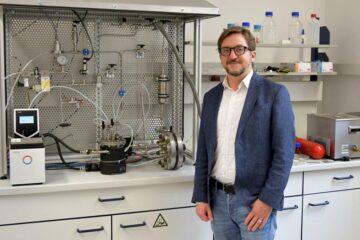EU policy makers signal a reappraisal of European innovation

A fundamental change in attitude is needed if Europe is to fulfil its competitive potential, the current head of the Competitiveness Council and Irish Minister for Enterprise, Mary Harney, told the European Business Summit on 12 March.
’Europe’s political and business leaders have to change their thinking fast – policies won’t work,’ said Ms Harney. Laws and regulations will not make Europe competitive, she added, warning that on the contrary, they could actually stifle innovation.
Referring to a recent report by UK think tank Demos, Ms Harney said that talent, technology and tolerance have replaced traditional elements such as the availability of natural resources as the core components of competitiveness. ’Are we genuinely tolerant of new thinking and ideas in Europe? I would suggest no, not always,’ she said.
Ms Harney outlined her thoughts on what organisational changes must take place to improve Europe’s position. First, an increased proportion of the EU budget should be spent on research and innovation, especially basic research. This should be accompanied by the creation of better links between universities and companies, and a simplification of the rules of participation in the EU research Framework Programmes.
Second, policy makers should adopt a new approach to legislation designed to stimulate competitiveness by asking themselves: ’do we need it, and is it competitive?’ Ms Harney also highlighted implementation of the services directive and the adoption of a communication on the mobility of researchers as key to boosting competitiveness.
’Lisbon is the only agenda, and we have slipped, but we can still achieve it with a sense of urgency. […] The Irish Presidency will use the Spring Council to revitalise the Lisbon agenda,’ Ms Harney promised delegates.
Later, the Summit was given an overview of the Commission’s forthcoming Innovation Action Plan by David White, Director of Enterprise policy at the Commission’s Enterprise DG. He told delegates that the Action Plan was designed to release Europe’s potential for innovation, not just in high tech fields, but within all sectors and companies.
Mr White said that the Action Plan would focus on three main areas: regulation, knowledge and resources. ’Good regulation creates a climate of confidence within which innovation takes place, whereas bad regulation can slowly strangle it,’ Mr White began.
Regulation, he said, is essential in order to balance public concern against commercial opportunities, and pointed to the issue of genetically modified organisms (GMOs) as an example of how hard it is to get that balance right. ’We don’t need no regulation, we need good regulation,’ he reiterated.
Second, the Action Plan will focus on creating a ’marketplace in knowledge’, where intellectual property is protected and exploited, where technology transfer is encouraged, and where people and companies are networked in clusters that are open to cooperation and new ideas.
Finally, the Action Plan will seek to ensure that the right resources for innovation are in place. This involves filling the current gap in the venture capital market, overcoming regional disadvantages to innovation, providing clear and simple state assistance, and investing in people’s skills and offering lifelong learning.
In order to achieve the objectives of the Innovation Action Plan, Mr White said: ’Governments need to pull together. Most innovative activity takes place at a regional or national level, but although innovation is essentially a local phenomenon, the framework in which it takes place is a common one.’
Mr White revealed that a two month consultation process on the Action Plan was expected to be launched in the coming weeks, with a view to its adoption by the Commission in July. He concluded by inviting the contribution of the business sector in the consultation process.
Media Contact
Weitere Informationen:
http://www.ebsummit.org/ http://www.cordis.lu/innovation-services/ http://cordis.lu/irelandAlle Nachrichten aus der Kategorie: Bildung Wissenschaft
Neueste Beiträge

Ideen für die Zukunft
TU Berlin präsentiert sich vom 22. bis 26. April 2024 mit neun Projekten auf der Hannover Messe 2024. Die HANNOVER MESSE gilt als die Weltleitmesse der Industrie. Ihr diesjähriger Schwerpunkt…

Peptide auf interstellarem Eis
Dass einfache Peptide auf kosmischen Staubkörnern entstehen können, wurde vom Forschungsteam um Dr. Serge Krasnokutski vom Astrophysikalischen Labor des Max-Planck-Instituts für Astronomie an der Universität Jena bereits gezeigt. Bisher ging…

Wasserstoff-Produktion in der heimischen Garage
Forschungsteam der Frankfurt UAS entwickelt Prototyp für Privathaushalte: Förderzusage vom Land Hessen für 2. Projektphase. Wasserstoff als Energieträger der Zukunft ist nicht frei verfügbar, sondern muss aufwendig hergestellt werden. Das…





















